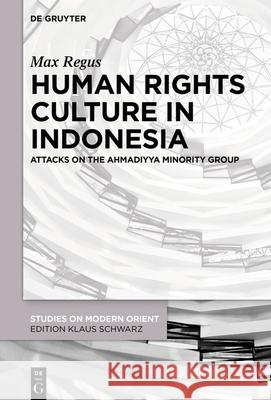Human Rights Culture in Indonesia: Attacks on the Ahmadiyya Minority Group » książka
Human Rights Culture in Indonesia: Attacks on the Ahmadiyya Minority Group
ISBN-13: 9783110693867 / Angielski / Twarda / 2021 / 297 str.
Drawing on human rights discourse and a study of the difficulties faced by religious minority groups (using the Ahmadiyya minority group as a case study), this book presents three interconnected challenges to human rights culture in Indonesia. First, it presents a normative challenge, describing the gap between philosophical and normative principles of human rights on one side and the overall problems and critical issues of human rights at national and local levels on the other. Second, it considers the political problems in developing and strengthening human rights culture. The political challenge addresses the ability (or inability) of the state to guarantee the rights of certain individuals and minority groups. Third, it examines the sociological challenge of majority-minority group relationships in human rights discourse and practices. This book describes the background of human rights in Indonesia and reviews the previous literature on the issue. It also presents a comprehensive review of the discourses about human rights and political changes in contemporary Indonesia. The analysis focuses on how human rights challenges affect the situation of religious minorities, looking in particular at the Ahmadiyya as a minority group that experiences human rights violations such as discrimination, persecution, and violence. The study fills out its treatment of these issues by examining the involvement of actors both from the state and society, addressing also the politics of human rights protection.











